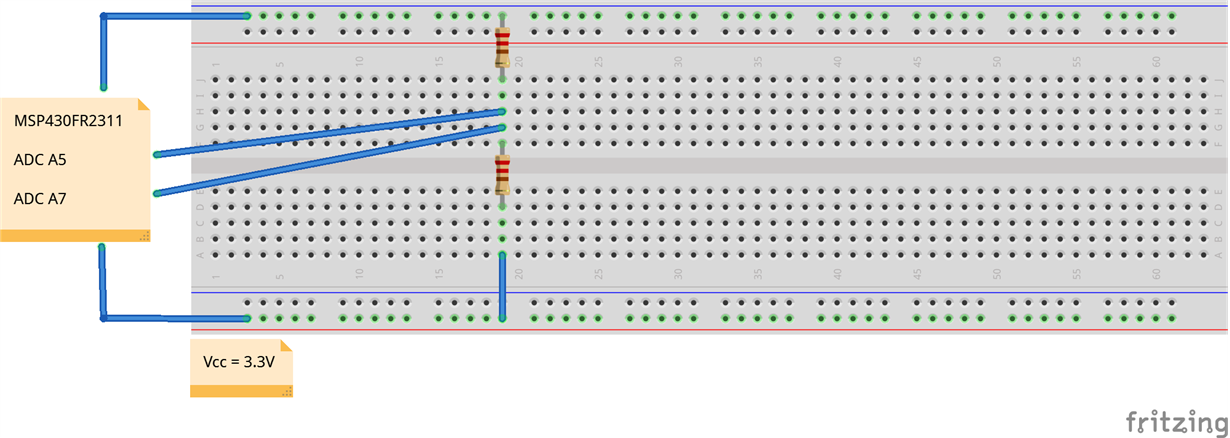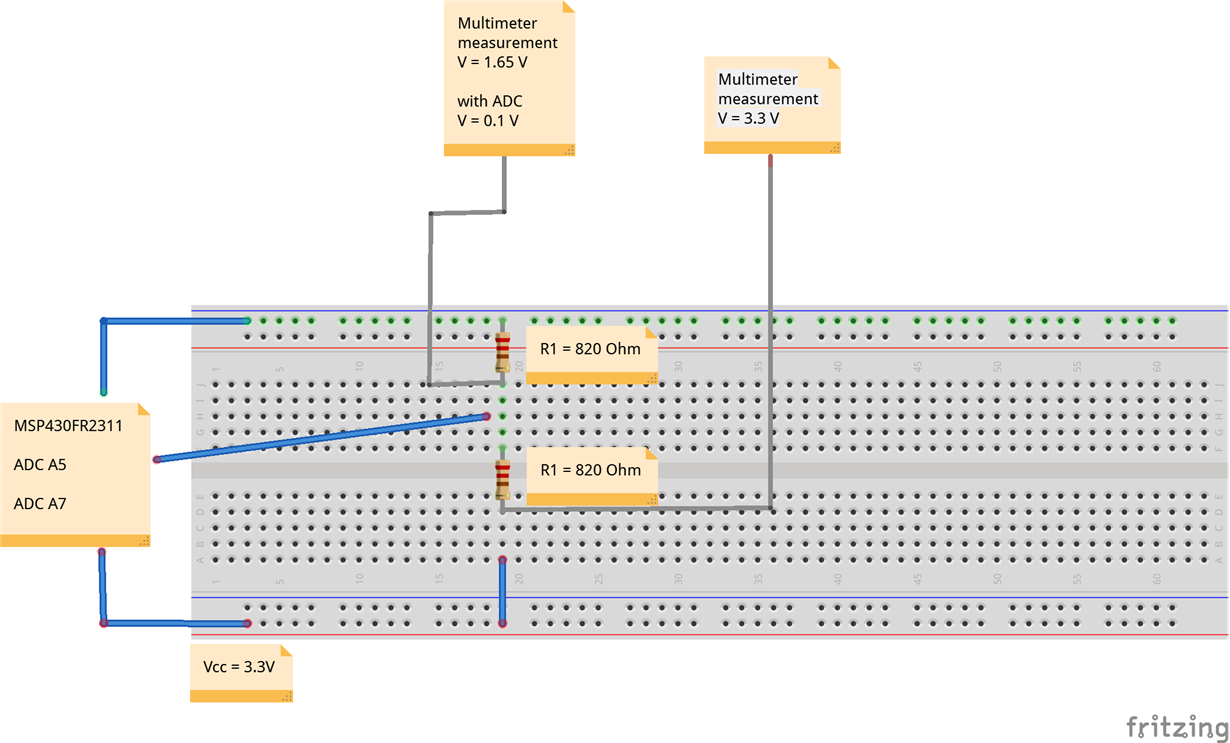Other Parts Discussed in Thread: MSP430FR2311
Tool/software: Code Composer Studio
Hi guys,
I have a problem with my ADC reading on the msp430fr2311. I have two ADC (A5 and A7) running, and they work perfectly fine if I am reading out 3.3 V or 0V directly. Since my final design requires a voltage devider to trimm the analog output (read value for ADC), I set up a voltage devider on my breadboard which is dividing the voltage by 2 (see below). This divider is doing his job and splits my 3.3 V equally.
If I connect now the ADCs (doesnt matter if one or both) then the voltage drops from 1.65 to 0.14 V.. What am I doing wrong here? I tried it with different resistors and also treated the ADC input as another resistor parallel to the second one.. still no change. I really need your help. If you reqire further infos, please let me know.
Best wishes
Fabi



